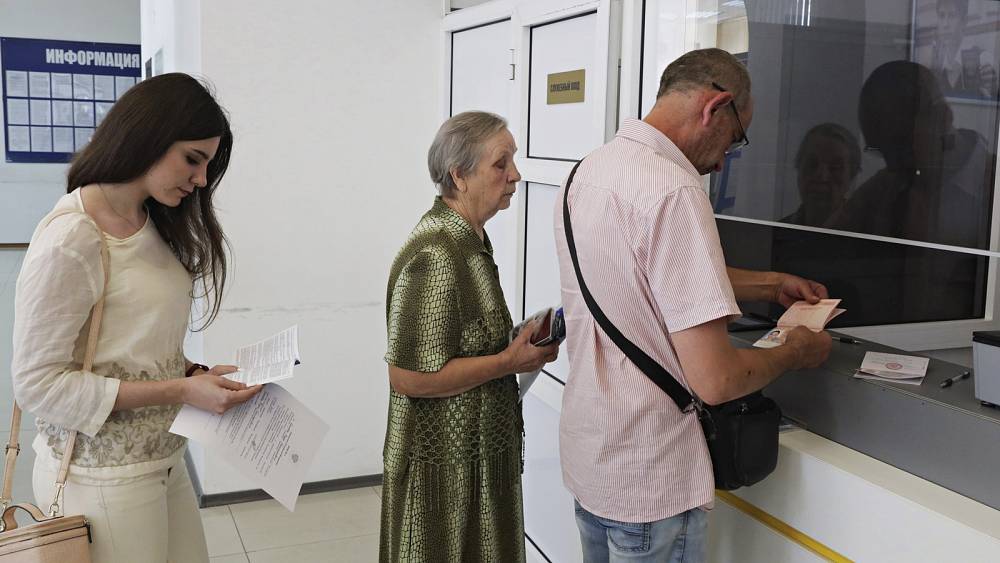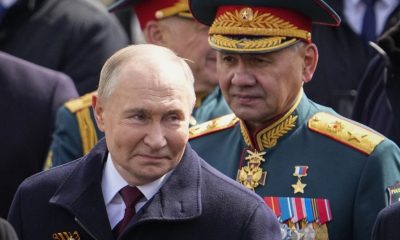General News
Germany and France be part of forces towards rising requires EU visa ban for Russians

Germany and France, the European Union’s largest and most influential member states, have joined forces to oppose the rising calls for for a EU-wide ban on the issuance of visas to Russian vacationers.
The 2 nations imagine the novel transfer would alienate all the Russian inhabitants, together with those that nonetheless maintain some attachment to the West.
“Whereas understanding the issues of some member states on this context we should always not underestimate the transformative energy of experiencing life in democratic programs at first hand, particularly for future generations,” Germany and France wrote in a doc seen by Reuters.
“Our visa insurance policies ought to mirror that and proceed to permit for people-to-people contacts within the EU with Russian nationals not linked to the Russian authorities.”
The vacationer ban has been backed by an growing variety of member states, together with Estonia, Latvia, Lithuania, Finland, Denmark and Poland, who argue the invasion of Ukraine deserves the whole suspension of Russian tourism.
On Tuesday, the Netherlands voiced its help in an interview with native media.
Ukrainian President Volodymyr Zelenskyy went even additional and urged all Western nations to impose a blanket journey ban on all Russian residents.
In the meantime, the Portuguese authorities mentioned EU sanctions towards the Kremlin ought to “penalise the Russian battle machine and never the Russian individuals,” a viewpoint echoed by Spain.
Greece is but to take a proper place within the debate, Euronews understands.
Introducing a EU-wide ban requires the unanimous settlement of the 27 member states.
‘Now we have to be selective’
The joint opposition from Berlin and Paris comes forward of the casual assembly of overseas affairs ministers in Prague, the place the problem is about to characteristic excessive on the agenda.
Wednesday’s assembly is hosted by the Czech presidency of the EU Council.
The Czech Republic has thrown its full help behind the EU-wide ban with the federal government suspending the issuance of visas to Russians earlier than taking on the presidency.
“Complete halting of visas for Russians must be one other efficient sanctions towards Russia,” Jan Lipavský, the Czech overseas minister, mentioned on Tuesday. “It’s a necessity for the EU to reply collectively.”
Estonian Prime Minister Kaja Kallas, one of many fiercest advocates for the sanction, mentioned earlier this month that visiting Europe was a “privilege, not a human proper.”
Round 30% of Russian vacationers enter the EU through the Estonian border, she mentioned.
Kallas later clarified her thought envisioned exceptions for humanitarian help and asylum seekers, consistent with worldwide regulation requirements.
Finland, which shares a 1,300 kilometre-long land border with Russia, has equally known as for a visa ban and has already restricted permits to 10% of present volumes (over 100 a day).
Russian nationals are organising automobile journeys to the airports of Helsinki and Lappeenranta to then catch a flight in the direction of different EU locations, in response to stories by Finnish media.
In Brussels, the mounting calls for from the East have to date acquired a chilly reception.
“I don’t assume [cutting] the connection with the Russian civilian inhabitants will assist and I don’t assume that this concept could have the required unanimity [in the EU Council],” Josep Borrell, the EU’s overseas coverage chief, instructed Austrian TV on Sunday.
“I feel that we now have to evaluate the way in which that some Russians get a visa, actually the oligarchs. Now we have to be extra selective. However I’m not in favour of stopping delivering visas to all Russians.”
‘It’s merely not honest’
Within the fast aftermath of Russia’s invasion, the EU determined to close down its air house to Russian plane, grinding direct flights to a halt. The bloc additionally closed its ports to Russian-operated vessels.
However land journey from Russia in the direction of the EU stays technically allowed, even when some bordering nations have frozen or severely restricted the issuance of vacationer visas in response to the battle.
Knowledge from Frontex, the EU’s border management company, exhibits that, because the Ukraine battle broke out in late February, almost one million Russians residents have legally entered the bloc through land, largely by way of Finland, the Baltic states and Poland.
The present debate focuses on so-called Schengen visas, which permit vacationers to journey throughout the passport-free Schengen space throughout a most interval of 90 days.
Schengen encompasses 24 EU nations, along with Iceland, Liechtenstein, Norway and Switzerland.
The short-term visa must be processed and authorized by a Schengen state and is recognised by all the opposite members as a authorized passage into their territory.
Proponents of the measure argue the Russian inhabitants is answerable for supporting Vladimir Putin and, by extension, the navy marketing campaign that he determined to launch.
“Ukrainian males must struggle for his or her freedom and the liberty of their nation, on the identical time, Russian males can come to southern European nations for trip or procuring in good European cities, and so forth and so forth,” Urmas Paet, a Estonian MEP who sits with the liberal Renew Europe group, instructed Euronews forward of the Prague assembly.
“It’s merely not proper. It’s merely not honest.”
For these towards the concept, the EU borders ought to stay open to dissidents, journalists and political opponents who defy the Kremlin and want to flee the nation.
“Banning visas for all nationals of a given nation could be an unprecedented determination,” mentioned Marie Dumoulin, director of the Wider Europe programme on the European Council on International Relations.
“[It] would stigmatise Russians and play into the arms of the Russian propaganda, which depicts the West as basically pushed by its Russophobia.”
Since Wednesday’s ministerial assembly is casual, no formal determination will likely be taken, though new steps could possibly be introduced.
As a substitute for an outright ban, diplomats are contemplating the suspension of a 2007 settlement that provides preferential remedy to visa requests from Russian nationals, in response to the Monetary Instances.
Revoking the settlement would make the applying course of rather more onerous and costly.
























